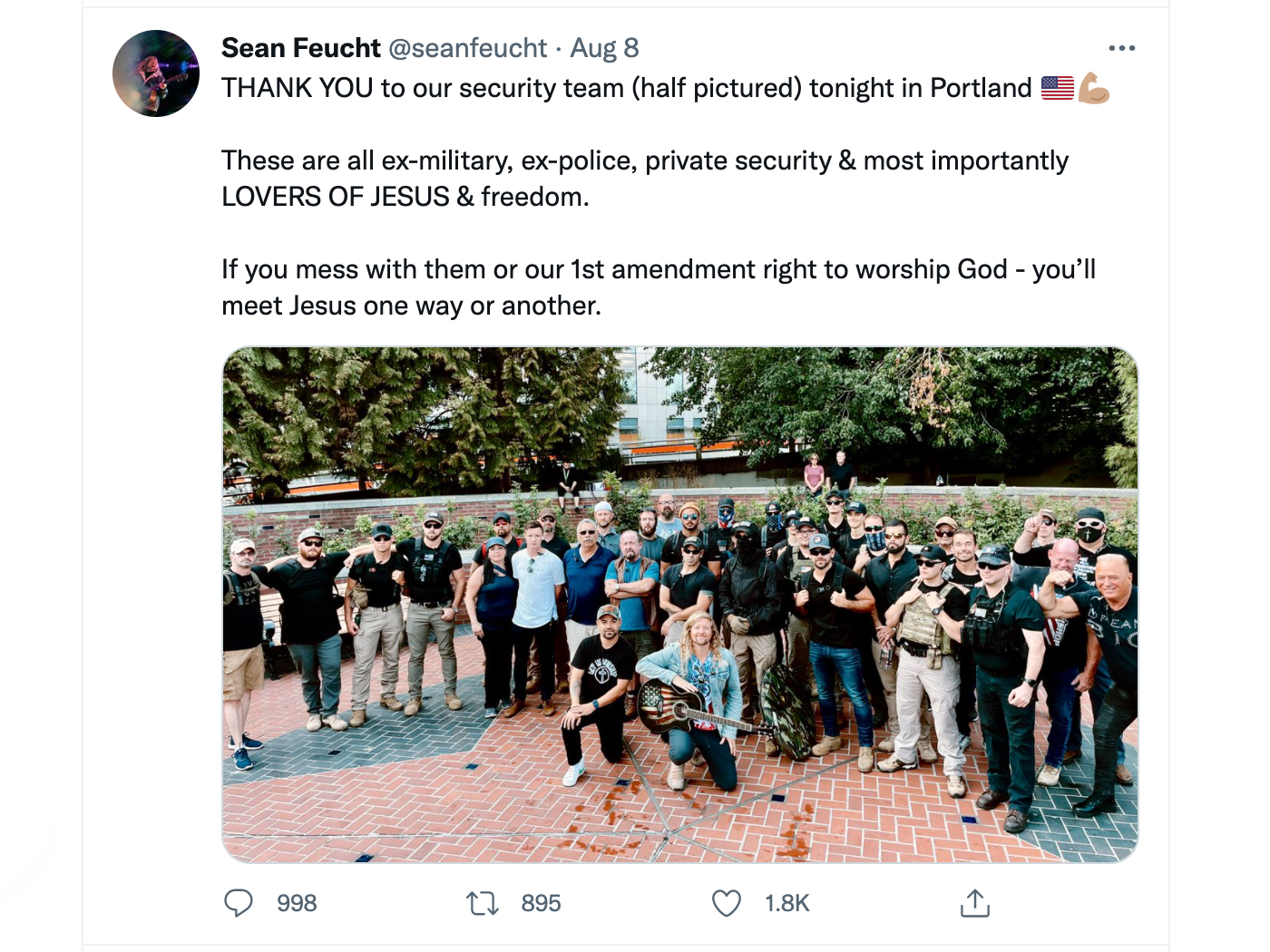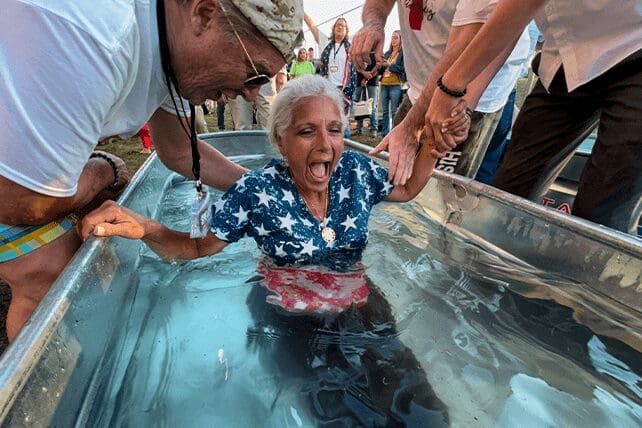(RNS) — “Christian nationalist” once summoned images of fiery extremists — stark racists concerned with keeping immigrants out of the United States or politicians who argued that the Ten Commandments ought to coexist in law with the Constitution. Then came Jan. 6, and suddenly the term became a culture-war acid test: One member of Congress began selling “Proud Christian Nationalist” T-shirts, while First Baptist Dallas pastor Robert Jeffress said if opposing abortion, transgender rights and illegal immigration made him a Christian nationalist, “count me in.”
For the record, sociologists Andrew Whitehead and Samuel L. Perry describe Christian nationalism as “a cultural framework that blurs distinctions between Christian identity and American identity, viewing the two as closely related and seeking to enhance and preserve their union.” But not everyone who meets the definition claims the moniker “Christian nationalist,” and some who do are only barely recognizable as traditional Christians.
Here are six loose networks of faith leaders and followers who fit some part of the definition:
- God-and-Country Conservatives
These largely unorganized faithful Americans are in many cases your friends, family and neighbors who hold dear a vision of the country rooted in nostalgia for a past that is more aspirational than historical. A recent Pew Research Center survey captured many of this group in the 45% of Americans who believe America should be a Christian nation, including 81% of white evangelicals, 67% of Black Protestants and 54% of nonevangelical Protestants. Almost half of Catholics (47%) also fall into this group, though Hispanic Catholics (36%) are less likely to do so than white Catholics (56%).
Only 16% of Jews think America should be a Christian nation, along with 17% of the unaffiliated and 7% of atheists and agnostics.
However, Pew found that half of Americans (52%) said the federal government should never name any religion as the country’s official faith. Only 24% said the government should make Christianity America’s official religion.
2. Religious Right’s Old Guard
This subset of evangelical Christian culture warriors runs the gamut from Tony Perkins, head of the Family Research Council, a Christian political lobbying organization, to Albert Mohler, president of Southern Baptist Theological Seminary, to Texas activist David Barton, who has long rejected the notion of the separation of church and state. Mostly concerned with pushing anti-abortion and “family values” legislation, they advocate for a Christian influence in our existing politics.
While their heyday came under the Reagan administration, they can claim a new generation in such politicians as Pennsylvania gubernatorial candidate Doug Mastriano and Colorado’s U.S. Rep. Lauren Boebert.
3. MAGA/QAnon
This summer Gen. Michael Flynn and Tennessee pastor Greg Locke drew large crowds as headliners for the “ReAwaken America Tour,” events that were part political rallies, part revival meetings. Though this movement grew out of “Stop the Steal” Trumpism, the tour featured figures such as Sean Feucht, a worship leader who came to prominence during the COVID-19 pandemic for his opposition to church closures, and often fused Christian nationalism with conspiracy theories about COVID-19 vaccines and globalism. Among their supporters are devotees of QAnon, who often claim the world is run by a secret cabal of Satan-worshipping pedophile Democrats.

Musician Sean Feucht posted a controversial statement about his security team on Aug. 8, 2021, in Portland. Screengrab via Twitter/@seanfeucht
4. The Extremely Online
Booted off of most social media platforms, the online wing of Christian nationalism seemed to have sunk into its own digital world until one of its leaders, the “America First” digital-only talk-show host Nick Fuentes, showed up with Kanye West at Donald Trump’s dinner table. Known to spout antisemitic and white supremacist rhetoric, these internet-based nationalists also include such figures as Andrew Torba, head of alternative social media website Gab who was briefly connected to Mastriano’s gubernatorial campaign. Torba recently published a book approving of Christian nationalism.
5. Trump Prophets
If Trump’s 2024 reelection bid gains steam, you’ll likely be hearing from this mix of prosperity-gospel proponents and self-proclaimed prophets who believe Trump was ordained by God to be president. Among the better known are Lance Wallnau, who predicted Trump’s 2016 election when the former president was still a long shot; South Carolina preacher Mark Burns; California megachurch pastor Che Ahn; and the Rev. Mario Bramnick of New Wine Ministries Church in Cooper City, Florida.
Some of this group overlaps with the New Apostolic Reformation, a network of preachers who believe that church leaders have been given spiritual authority over Christian nations and seek to develop ties with leaders abroad. While allegiance to Trump has become a point of debate in the NAR community, and some members have disavowed Christian nationalism, others, such as South Carolina pastor Dutch Sheets, who reportedly visited the White House hours before the attack on the Capitol, have stood by their prophecies.

Televangelist Lance Wallnau explains the significance of a gold coin featuring King Cyrus and President Trump on the Jim Bakker Show in May 2019. Video screenshot

